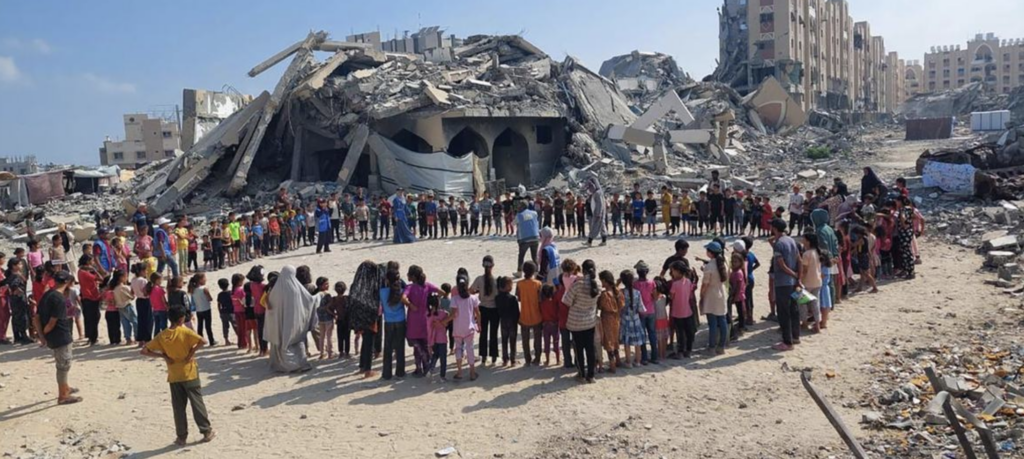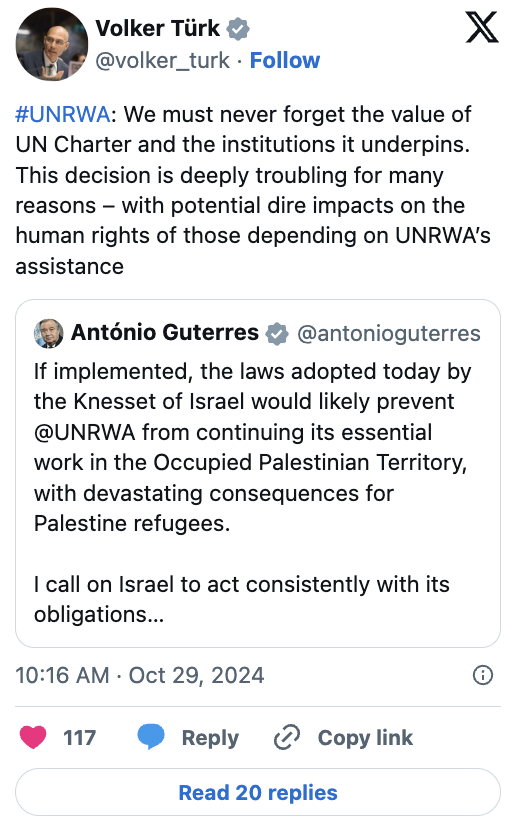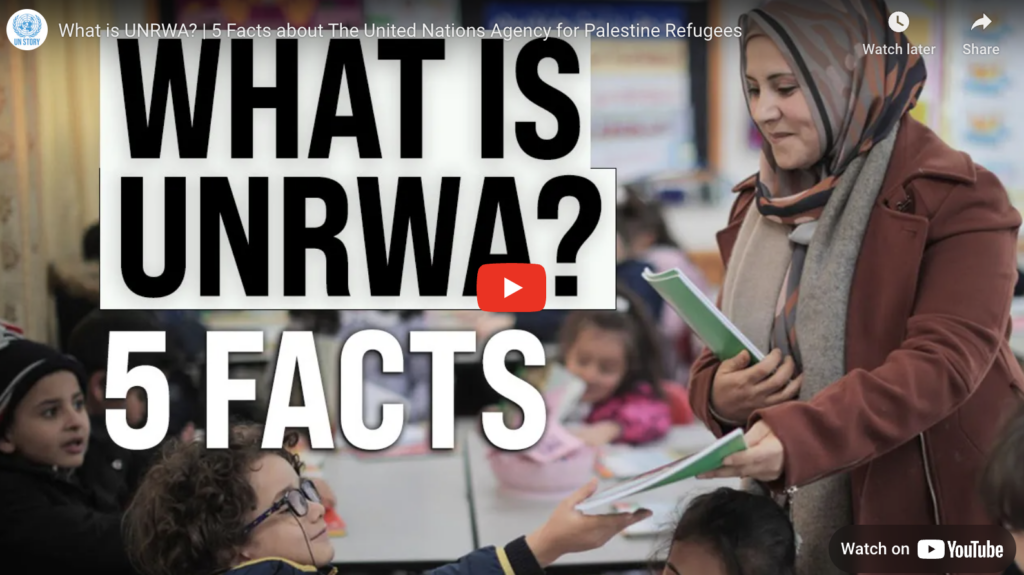UNRWA cannot be replaced, say UN top officials in response to Knesset ban

United Nations, 29 October 2024
Top UN officials continued to line up on Tuesday to defend the irreplaceable role of the global body’s agency for Palestine refugees, UNRWA, insisting that if implemented, the Israeli parliament’s decision to ban it would only deepen suffering in Gaza.
Echoing UN Secretary-General António Guterres’s warning late Monday that the development would likely have “devastating consequences” as UNRWA is the principal deliverer of aid relief inside the war-torn enclave, UN human rights chief Volker Türk called the Knesset move “deeply troubling for many reasons”.
In Geneva, spokesperson for the UN human rights office (OHCHR) Jeremy Laurence said that the High Commissioner had pointed to the “potential dire impact” on the rights of all those who depend on the UN Relief and Works Agency.

“Without UNRWA, the delivery of food, healthcare, education, among other things, to most of Gaza”s population, would grind to a halt,” he said. “Civilians have already paid the heaviest price of this conflict over the past year. Truly, this decision will only make matters worse for them, far worse.”
The OHCHR spokesperson reiterated previous concerns “about Israel’s compliance with international law” with regard to its intense bombardment of Gaza, where tens of thousands of civilians have been killed, according to the local authorities. Mr. Laurence also highlighted that Israel remained bound by its obligations “under a range of human rights treaties”, including the International Covenant on Economic and Social Rights.
‘Intolerable’ move, says Tedros
After Monday’s reported 92-10 vote by Knesset members in favour of two bills targeting UNRWA, head of the UN World Health Organization (WHO), Tedros Adhanom Ghebreyesus, called the development “intolerable”, while also “threatening the lives and health” of all those who depend on UNRWA.
Around one in four UNRWA staff in Gaza is health workers carrying out routine but lifesaving work, noted WHO spokesperson Tarik Jasarevic. They “basically provided more than six million medical consultations last year in the health centres that are run by UN and they have been providing these consultations for more than half of Gaza population,” he said.
These health teams are responsible for the routine immunization of children including for polio and screening for disease and malnutrition, the WHO spokesperson explained. “So, really, if you think that 3,000 of their staff are health workers, it’s really unmatched; it could be it couldn’t be matched by any agency, including WHO,” he said.
Convoys ‘denied or impeded’
After more than a year of intense Israeli bombardment, sparked on 7 October 2023 by Hamas’s deadly rampage in Israel, Gaza’s devastated communities continue to suffer from insufficient outside help. “Out of 25 requests for missions this month, only seven of them managed to take place, others were either denied or were impeded,” Mr. Jasarevic said.

The WHO official noted that as long as there was no agreement on humanitarian pauses, “it is difficult to imagine to have this second round of polio vaccination” in northern Gaza.
From the UN aid coordination office, OCHA, spokesperson Jens Laerke stressed the need to keep diplomatic avenues open, for the sake of millions of Palestinians helped by UNRWA across the Occupied Palestinian Territories. “We are trying to not have an implementation of this [Knesset vote],” he said, adding that if the bills became law, they would “add to the acts of collective punishment” by Israel on Gazans.
Catherine Russell, head of the UN Children’s Fund (UNICEF), defended the crucial role of UNRWA in delivering aid to Palestinian children and families and warned that the youngsters’ “lives and futures” were at stake.
UNICEF spokesperson James Elder told journalists in Geneva that without UNRWA, the humanitarian system in Gaza would likely collapse and the UN Children’s Fund “would become effectively unable to distribute lifesaving supplies here. I’m talking vaccines. I’m talking winter clothes. I’m talking hygiene kits, health kits, water and sanitation” and lifesaving support for malnourished youngsters facing famine. “So, a decision such as this suddenly means that a new way has been found to kill children,” he said of the Knesset vote.
The original article appeared here.